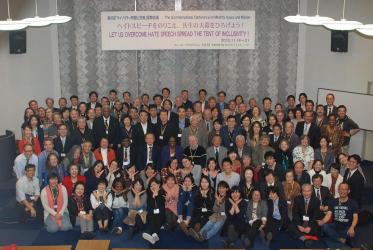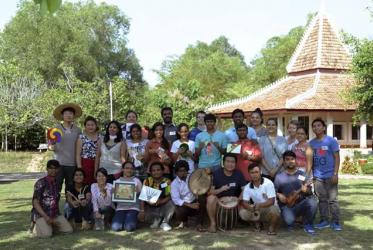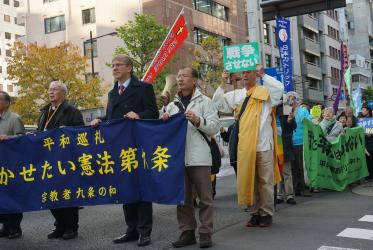Displaying 61 - 80 of 90
09 May 2016
Japanese churches discuss minority issues
01 December 2015
WCC praises Church of South India as a truly united church
26 November 2015
WCC general secretary sends Diwali greetings to Hindu partners
12 November 2015
Climate pilgrimage toward COP21 pauses in Geneva
05 November 2015
WCC encourages churches to pray on Hiroshima Day
06 August 2015
Christians around the world pray for unity
22 January 2015
Momentum builds for ban on nuclear weapons
16 December 2014









